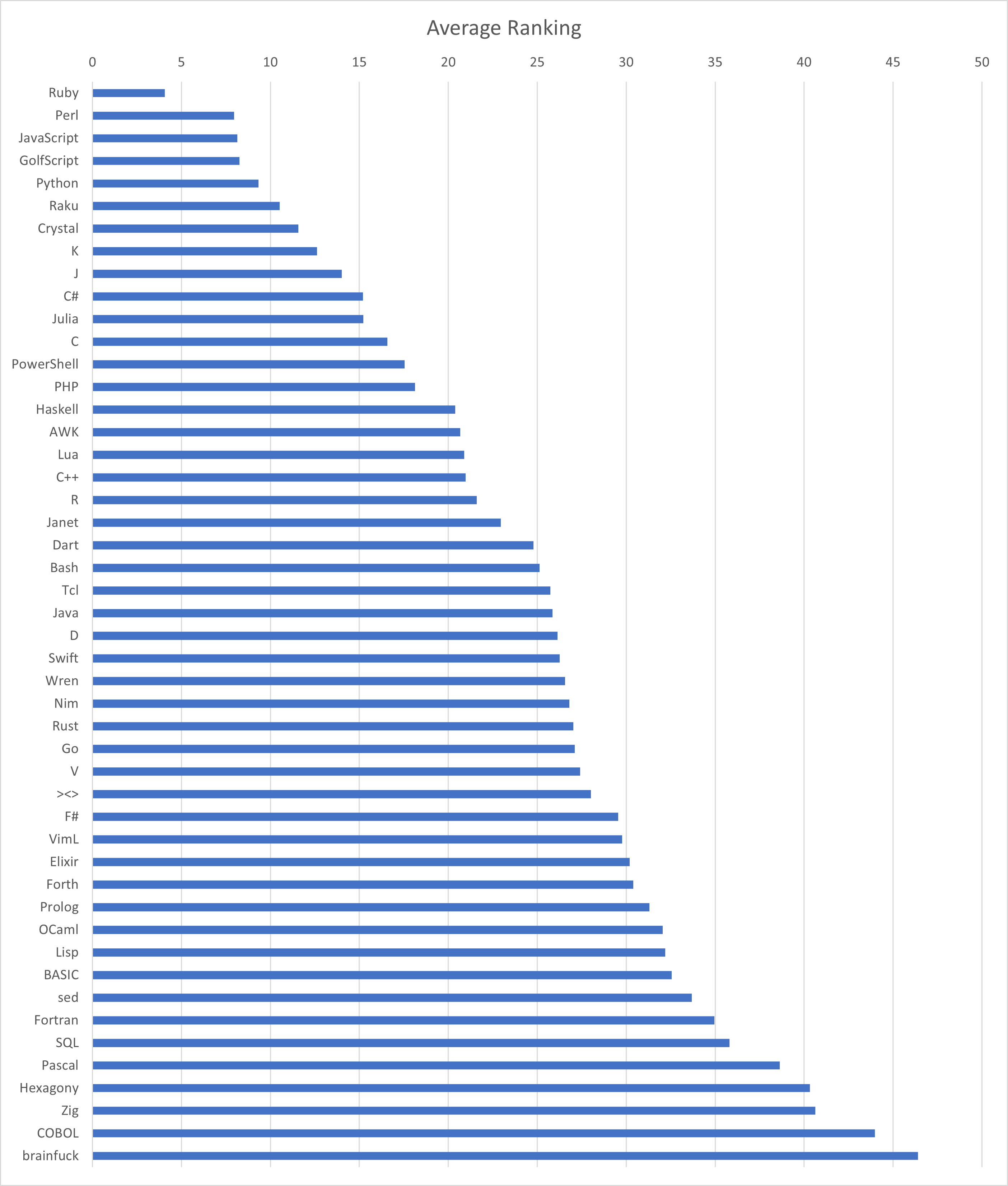I was looking at code.golf the other day and I wondered which languages were the least verbose, so I did a little data gathering.
I looked at 48 different languages that had completed 79 different code challenges on code.golf. I then gathered the results for each language and challenge. If a “golfer” had more than 1 submission to a challenge, I grabbed the most recent one. I then dropped the top 5% and bottom 5% to hopefully mitigate most outliers. Then came up with an average for each language, for each challenge. I then averaged the results across each language and that is what you see here.
For another perspective, I ranked each challenge then got the average ranking across all challenges. Below is the results of that.

Disclaimer: This is in no way scientific. It’s just for fun. If you know of a better way to sort these results please let me know.


It’s interesting, the results here are way different than the Code Golf & Coding Challenges Stack Exchange. I would never expect Haskell to be that low. But after looking at code.golf, I realize it’s because I/O on CG&CC is more relaxed. Most Haskell submissions are functions which return the solution.
Sidenote: I like the CG&CC method, it’s semi-competitive, semi-cooperative.
IMO It’s geared towards what is the best part about code golf: teaching people about algorithm design and language design.